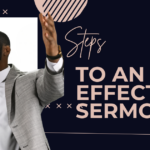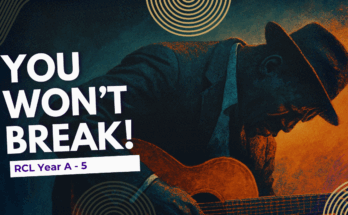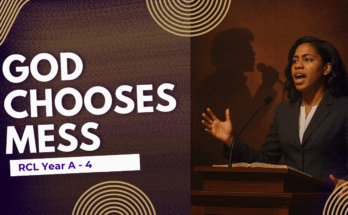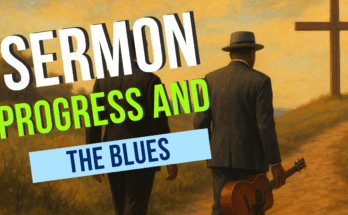As an Amazon Associate I earn from qualifying purchases.
Olin P. Moyd gives an interesting quote on page 121 of his important work The Sacred Art: Preaching and Theology in the African American Tradition. He writes:
The preaching opportunity always occurs at the intersection where the human situation of a particular group and the Word of God meet in time and place. The sermon must be true to the text, applicable to life situations, and always relevant to present conditions and aspirations of the community being addressed. There must be divine answers to the cries, “What must I do in my present situation?” just as there are answers to “What must I do to be saved?” Preaching in the African American tradition always responded to both of these questions.
What must I do here?
If we are to be effective communicators of the Gospel of God’s inbreaking kingdom, then we must be willing to state what we must do today. What does God expect of me in my context? What are the requirements of Christianity for my living today? In short, we cannot only ask one question of the two if we are to be true followers of Jesus Christ.
One of the challenges of this question is that it forces us to confront and say what we don’t want to say. We must say that God expects our Christianity to affect how we live. Our Christianity effects how we eat, our Christianity effects how we run our business and how we work in our daily lives. Our Christianity affects how we treat the least of these. Our Christianity affects the whole of human experience. If we are to be effective ministers of God’s in-breaking kingdom then we must be willing to name God’s work in today’s world and name our own responsibilities in light of these facts.
What must I do to be Saved?
As Christian ministers, we must tell humanity how to get in right relation with God. I think that the social implications of the Gospel are important to keep in mind, but so are the simple steps to what we have called salvation. Our brothers and sisters are correct when they tell us about how God supernaturally placed them on the road of salvation. I would argue that both angles and sides are needed. In Short if God can supernaturally break the back of social inequality, then God can change me so that I can “look at my hands and they looked new, look at my feet and they did too.”
Conclusion
The social change in the world and the individual change are both made possible by the transformative power of God. As relevant effective preachers in the Black tradition we must preach this holistic message.
Amazon and the Amazon logo are trademarks of Amazon.com, Inc, or its affiliates.





